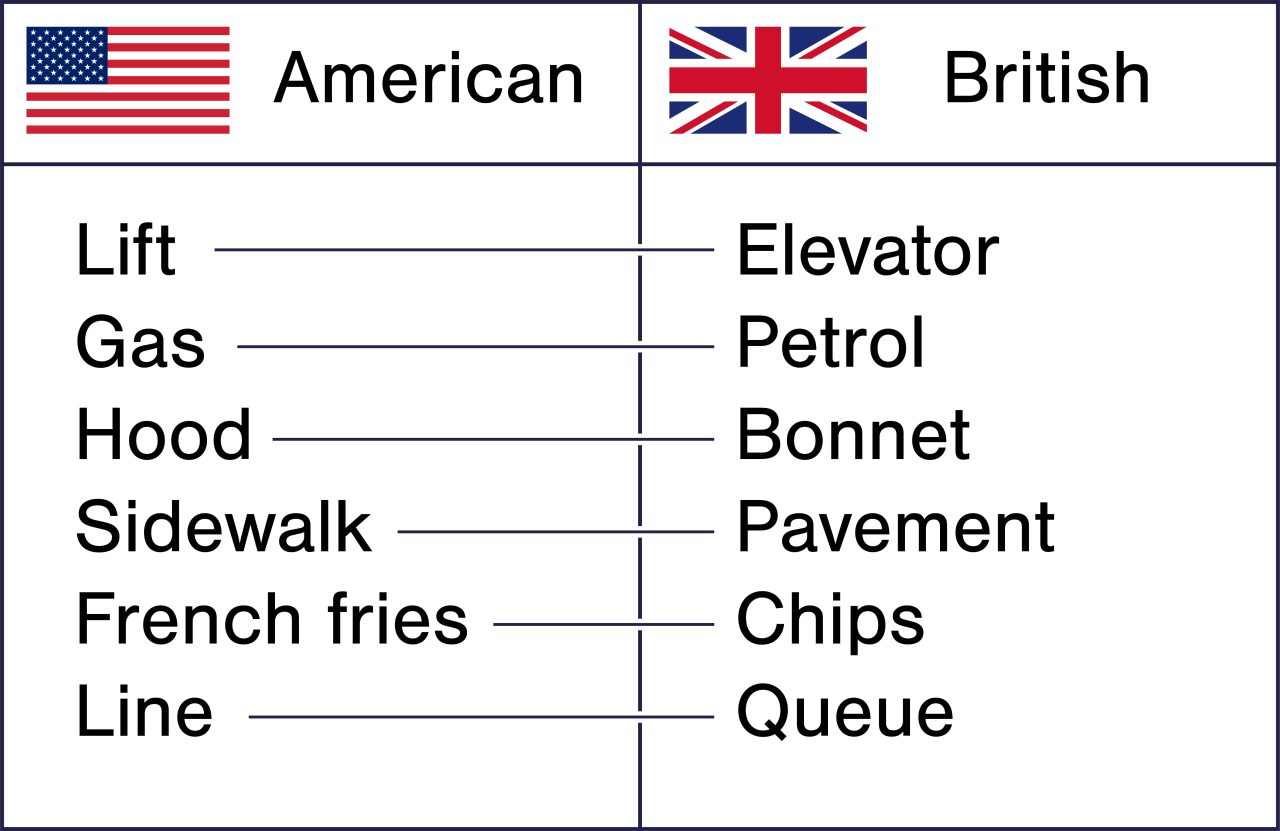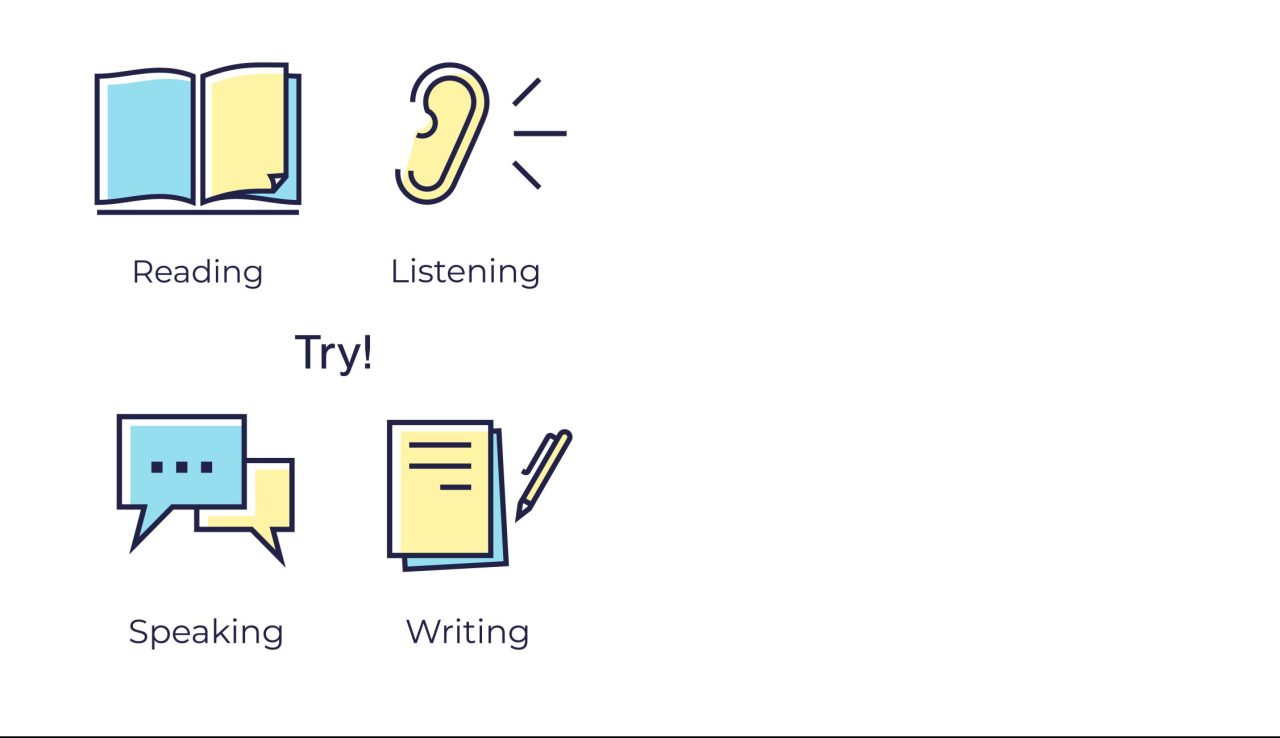



There are some vocabulary differences between American and British English, for example:


Talk the talk!
The main point of learning a language is to communicate with others. Whether you speak it perfectly in a specific accent is irrelevant. Just make sure you try to get the grammar and sentence structure fairly right, and that your pronunciation is understandable.
The worst thing that can happen if you make a grammatical mistake, pronounce a word incorrectly or you don’t know a word, is that you learn something new!

Kilder:
-
- Language Advantage (07.11.22): What is an accent and how can it be improved?
https://languageadvantage.ca/what-is-an-accent-and-how-can-it-be-improved/
- Language Advantage (07.11.22): What is an accent and how can it be improved?
-
- Merriam-Webster (07.11.22): Accent
https://www.merriam-webster.com/dictionary/accent
- Merriam-Webster (07.11.22): Accent
-
- BBC (23.11.22): Secrets to learning a language
https://www.bbc.com/worklife/article/20150302-secrets-to-learning-a-language
- BBC (23.11.22): Secrets to learning a language
-
- Statista (23.10.22): The most spoken languages worldwide in 2022
The most spoken languages worldwide 2022 | Statista
- Statista (23.10.22): The most spoken languages worldwide in 2022
-
- English Raven (23.10.22): How many people speak American-English VS British-English?
How Many People Speak American-english Vs British-english? – englishraven.com
- English Raven (23.10.22): How many people speak American-English VS British-English?
-
- The University of Sheffield (23.10.22): List of majority native English speaking countries
List of majority native English speaking countries | International students | The University of Sheffield
- The University of Sheffield (23.10.22): List of majority native English speaking countries
-
- World Economic Forum (23.10.22): Which Countries are best at English as a second language?
Which Countries are Best at English as a Second Language? | World Economic Forum (weforum.org)
- World Economic Forum (23.10.22): Which Countries are best at English as a second language?
-
- Study Smarter (29.10.22): International English
International English: English Speaking Countries | StudySmarter
- Study Smarter (29.10.22): International English
-
- Britannica (29.10.22): What are the differences between British and American English?https://www.britannica.com/dictionary/eb/qa/what-are-the-differences-between-British-and-American-English#:~:text=The%20most%20significant%20differences%20between,pass%20over%20them%20for%20today.
Bilde – og videorettigheter:
-
-
Getty Images
-
Adobe Stock
-
The Daily Show – YouTube
-
Adobe Stock
-
Anglopheria – YouTube
-
Insider Science – YouTube
-
Adobe Stock
-
BBC –YouTube
-
Adobe Stock
-
Adobe Stock
-
Adobe Stock
-


